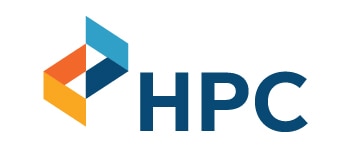- Massachusetts Health Policy Commission
Media Contact for NUMBER OF URGENT CARE CENTERS AND RETAIL CLINICS SURGE IN MA
Matthew Kitsos, Press Secretary
Boston — Thursday, August 9, 2018 – Today, the Massachusetts Health Policy Commission (HPC) released its eighth DataPoints issue, examining the growth of alternative care sites including retail clinics and urgent care centers. This new research focuses on the growth of these sites in Massachusetts over time, the areas they are located in, and the types of services they provide. Massachusetts experienced strong growth in both retail clinics and urgent care centers over an eight-year period, with urgent care center locations growing more than 700 percent.
The HPC also found staggering differences in cost between an average visit to the emergency department (ED) and an urgent care center or retail clinic visit. Among the key findings, the average ED visit costs just under $900 with a patient copayment averaging $118, compared to the average urgent care center cost of $149 with patient copayments averaging $33, and $69 at retail clinics with patient copayments averaging $20. Even when examining a similar set of minor conditions that can be treated across all settings, the average cost difference between an ED visit and retail clinic is considerable. An average ED visit for the set of minor conditions examined was $688 with a patient copayment of $130, compared to $147 at urgent care centers with a patient copayment of $32, and $78 at retail clinics with a copayment of $26.
“Urgent care centers and retail clinics have the potential to increase timely and convenient access to low-cost, high-quality care for patients in the Commonwealth, including by reducing avoidable ED visits,” said David Seltz, HPC Executive Director. “However, there is still much more to understand about the market dynamics driving the staggering growth in these sites, their role in enhancing access for underserved populations, and how they participate in care coordination efforts across the broader health care system. We look forward to continuing the work to understand more and help ensure patients are receiving high-quality care at a lower cost.”
Key Findings
- The number of retail clinics in Massachusetts nearly tripled from 20 in 2010 to 57 in 2018. The number of urgent care centers increased eight-fold from 18 in 2010 to 145 at the end of 2017.
- Today, 61 percent of urgent care centers are part of non-hospital chains such as American Family Care and Carewell Urgent Care, a reversal from 2010 when most urgent care centers were affiliated with hospitals.
- However, in 2017, 15 new hospital-based urgent care centers opened, surpassing the 11 new non-hospital urgent care centers. As of mid-2018, Partners HealthCare System owns the largest number of urgent care centers (16) among all hospital systems in Massachusetts.
- The majority of these sites are located in higher income areas: 58% of urgent care centers are in zip codes with above-median income while 72% of retail clinics are in these zip codes.
- Between 2010 and 2018, Massachusetts saw the most noticeable increase in urgent care centers and retail clinics in the Springfield and Worcester areas, and the areas outside of Boston. Urgent care centers are most prevalent in Metro Boston.
- The Norwood/Attleboro and South Shore regions have more than six times as many urgent care centers and retail clinics combined as they do EDs. The Upper North Shore and the Berkshires, on the other hand, have roughly the same number of EDs as they do urgent care centers and retail clinics combined.
- Sore throats and acute sinusitis accounted for 30 percent of the conditions that retail clinics saw during visits. Urgent care centers treated a wider range of conditions but also saw sore throats (and upper respiratory infections a close second) as the top condition for visits.
###
The Massachusetts Health Policy Commission (HPC), established in 2012, is an independent state agency charged with monitoring health care spending growth in Massachusetts and providing data-driven policy recommendations regarding health care delivery and payment system reform.
Visit us at Mass.gov/HPC. Tweet us @Mass_HPC.
###
